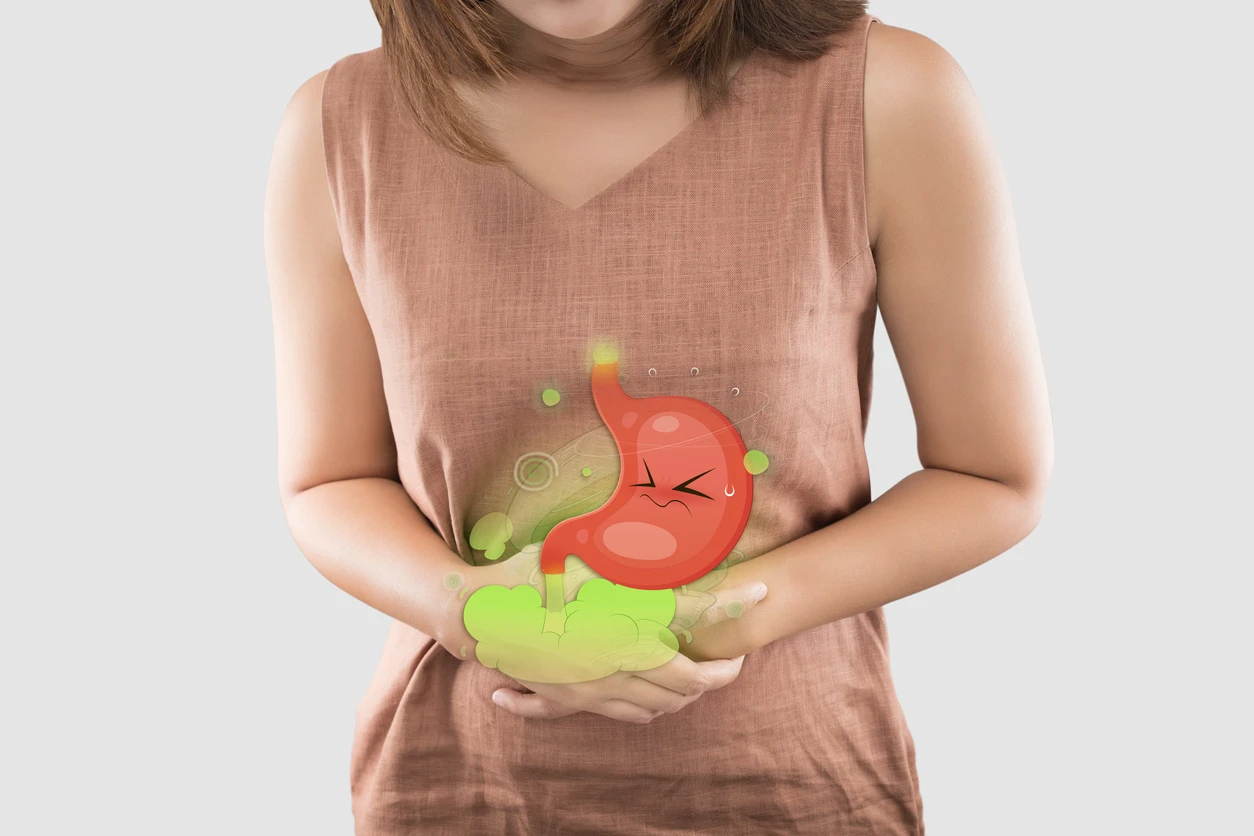Bloating is a common and often uncomfortable issue that many individuals experience at some point in their lives. It can manifest as a feeling of fullness or swelling in the abdomen.
From digestive disorders to food intolerances, several factors can cause bloating. A few lifestyle factors, like stress and physical inactivity, are also common causes of bloating. Certain foods can lead to increased gas production or water retention, exacerbating the problem. However, making a few diet and lifestyle modifications can help eliminate bloating effectively. By making informed dietary choices, individuals can minimise their discomfort and enhance their overall digestive health. Recently, Dr. Saurabh Sethi, popularly known as the gut doctor, a gastroenterologist trained at AIIMS, Harvard, and Stanford Universities, shared 3 ultimate tips to reduce bloating in an Instagram video. He also shared some bonus tips that you cannot afford to miss.
3 simple tips to reduce bloating
1. Treat constipation:
“People who are constipated are more likely to be bloated.” The expert recommends adding these foods to your diet:
- Pineapple
- Kiwi
- Papaya
- Mango
- Ginger
“These foods contain digestive enzymes which help relieve bloating,” he added. These enzymes help break down food more efficiently and promote regular bowel movements, which can alleviate bloating.
2. Low FODMAP diets
FODMAPs (Fermentable Oligo-, Di-, Mono-saccharides and Polyols) are types of carbohydrates that can cause excessive gas and bloating in some individuals.
“FODMAPs are the foods that can produce excessive gas. Try to get on a low FODMAP diet,” he advised. Also, focus on options that are easier to digest.
3. Find the culprits
Once you start a low FODMAP diet, “try to reintroduce some of these foods to see which are the culprit foods you need to stay away from,” Dr. Sethi said. This method allows you to identify specific items that your body reacts poorly to, so you can avoid them in the future.
Check for lactose intolerance: “If that does not work, then you may need to get a little bit more restrictive. You may need to eliminate lactose from your diet. Almost 2/3 of the adults worldwide are lactose intolerant”
The doctor further shared a bonus tip: “If none of these things work, you may want to supplement with a really good probiotic, ideally one with live culture, especially with bifidobacterium,” Dr. Sethi added. The doctor further added that studies show that Bifidobacterium not only helps with bloating but also with symptoms of IBS.
Additionally, managing stress, drinking enough water, limiting consumption of carbonated drinks and staying physically active to keep digestion healthy. Remember, consistency is key, so make these practices a regular part of your routine for the best results.
